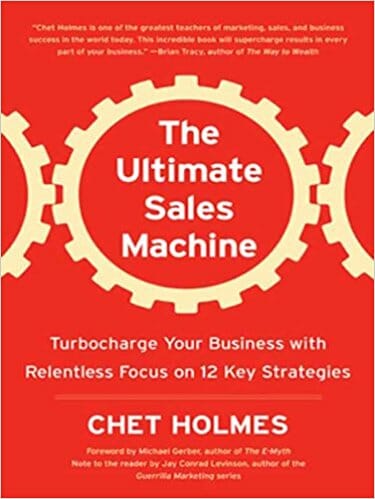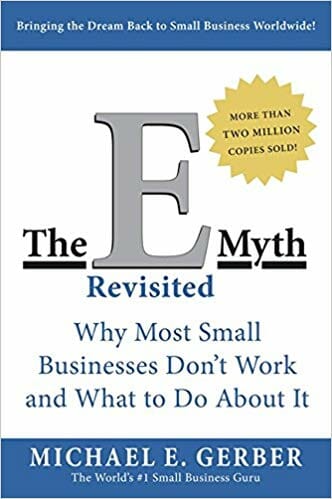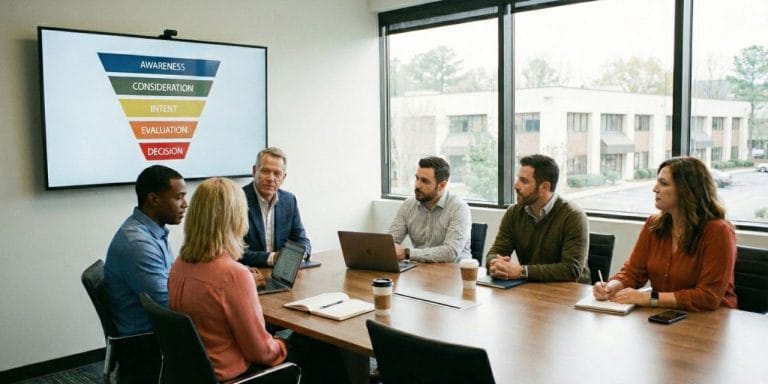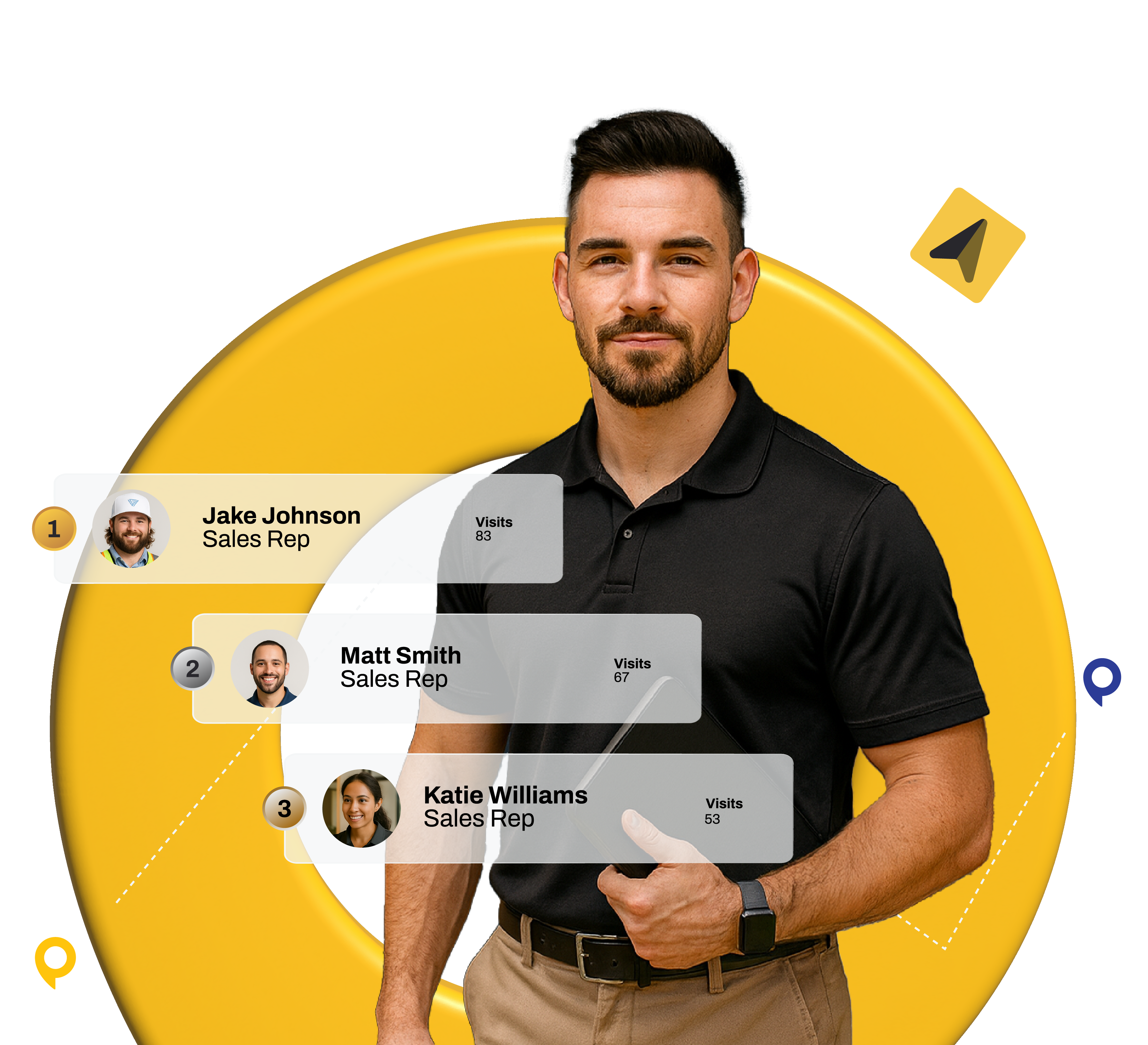An Interview With An Industry Leader in Door-to-Door Sales
The SPOTIO team recently had the opportunity to sit down with “The Brand Ambassador Guy,” Michael Rosenberg, and learn from his successful 35-year career leading companies driven by door-to-door sales. Rosenberg started his door-to-door sales career at age 12 when building his paper route. After years of tremendous growth across 22 states and building to millions in revenue, he sold his company in 2008.
Today, Rosenberg acts as an executive coach and consultant, helping companies around the globe optimize their door-to-door sales operations with a tremendous focus on talent strategy, recruitment and retaining talent. In this article, we’ll share what we learned from Rosenberg, including his go-to strategies for recruiting and retaining rock-star talent.
An Unconventional Interview Process
“I can teach pretty much anything, but there are two things I simply can’t teach – I have to hire for them,” Rosenberg said. “I can’t teach people to be likable, and I can’t teach people to be persistent.”
Kindness is King
According to Rosenberg, the first quality he looks for in a job candidate is a relatable and likeable personality.
“Whether I’m using a video conference or meeting someone for lunch, I look first for nice,” Rosenberg said. “I’m looking to see if the person looks me in the eye, says please and thank you, and comes across as a genuine nice person.”
If Rosenberg doesn’t get the warm and fuzzies, he doesn’t move forward. But according to Rosenberg, likeability is the easier of the two unteachable qualities.
Testing for Persistence
According to Rosenberg, traditional interview questions fail to truly test for persistence. That’s why Rosenberg consistently leverages a strategy he learned from The Ultimate Sales Machine author, Chet Holmes.

The strategy is based on the theory that most customers are going to say “no,” or “come back later.” When you ask traditional interview questions about how candidates handle rejection, they’ll likely provide a scripted example. There’s no way to know if that story represents their consistent and repeatable behavior.
“I need a sales rep that’s not going to back down,” Rosenberg said. “When they hear no, I need to know they’ll keep going. And I need a way to simulate that in the interview.”
To do this, Rosenberg takes an unconventional approach. He rejects them in the interview and observes their reaction.
“Eight out of ten candidates are going to accept the rejection,” Rosenberg said. “These are not the right candidates for me.”
According to Rosenberg, about one out of ten will get angry and defensive. He usually hires these candidates for their grit, but these are not the candidates who show the most promise.
“The best candidates will say something like, ‘Thank you for the feedback, but what is your definition of a rock star sales rep?’ with ease and grace.”
Rosenberg is looking for candidates who are not going to take no for an answer, but they’re going to be polite about it. They may switch gears by telling you a story.
“They’ll tell you about the time they didn’t make the basketball team but kept showing up for practice, or a time that they pushed really hard to earn something,” Rosenberg said. “And they’re going to keep telling stories with ease and grace – those people have superstar potential.”
Finding and Developing Leaders
According to Rosenberg, building out a quality sales force is only half the battle. If you want to grow a company exponentially you must focus on attracting and developing leaders – people who can run businesses.
Rosenberg cites The E-Myth by Michael Garber as the book that changed his mindset about building his business.

“If you want to be wildly successful, you have to work on your business, not in your business,” Rosenberg said, citing the popular book.
Rosenberg acknowledges that while door-to-door sales is a tough game, great door knockers are not always great business leaders. To reach exponential growth, you have to find people who can run companies.
“I’ve become successful by finding people ten times more capable than myself,” Rosenberg said. “I find people with the potential to run companies, and I fast track them.”
Rosenberg believes that company leaders should have first-hand experience in their business, so he starts them at the bottom even if they have great leadership experience.
“I make a commitment from the beginning,” Rosenberg said. “If leadership recruits hit their numbers in four to six weeks, I tell them they will be offered the chance to manage one of my offices.
“And at six months, as long as they are honest, hard-working, and people respect them, I’m going to make them my partner.”
According to Rosenberg, the key was to get out of the day-to-day business and shifting his focus on finding top talent who would run their companies as their own.
“Sometimes this means I took profits of my company and put them in business,” Rosenberg said. Sometimes it was through franchise, partnership, or a company store, depending on the situation.”
Retaining Talent

According to Rosenberg, retaining talent has never been an issue for him in his experience and this method to success is very simple.
“Retaining talent comes down to creating a great company culture, creating good air, and focusing on things people care about like recognition, incentives, good comp plans, and benefits,” Rosenberg said. “Also, retention often comes from the spouse and family.
“I do my best to make sure the family is happy and proud of the company their family represents.”
According to Rosenberg, 99 percent of companies are shaped like an upright pyramid. Everyone’s job is to make the owner on the top money. Rosenberg believes this is philosophically backwards and instead encourages the organizations he consults to operate as an upside-down pyramid that puts the boss at the bottom and the customer on top.
“As a leader, your job is to serve the team, so that they in turn are motivated to serve the customer” Rosenberg said. “When the boss serves the team, creates great mentorship and advancement opportunities, and treats the team like family, the team is committed to doing what’s right for the customer.”
If you treat your employees well, they treat your customers well – Everything comes full circle, he said.
Want more from Michael Rosenberg?
After a wildly successful career in door-to-door sales, Rosenberg now helps others reach their full potential. To learn more or to contact Rosenberg directly for a free coaching session, reach out to him on LinkedIn.
________
Questions or comments? Contact SPOTIO at [email protected] or comment below.
SPOTIO is the #1 field sales acceleration platform to increase your revenue, maximize your profitability, and increase your team’s productivity.
Want to see a product demonstration? Click here to see how SPOTIO can take your sales game to the next level.




